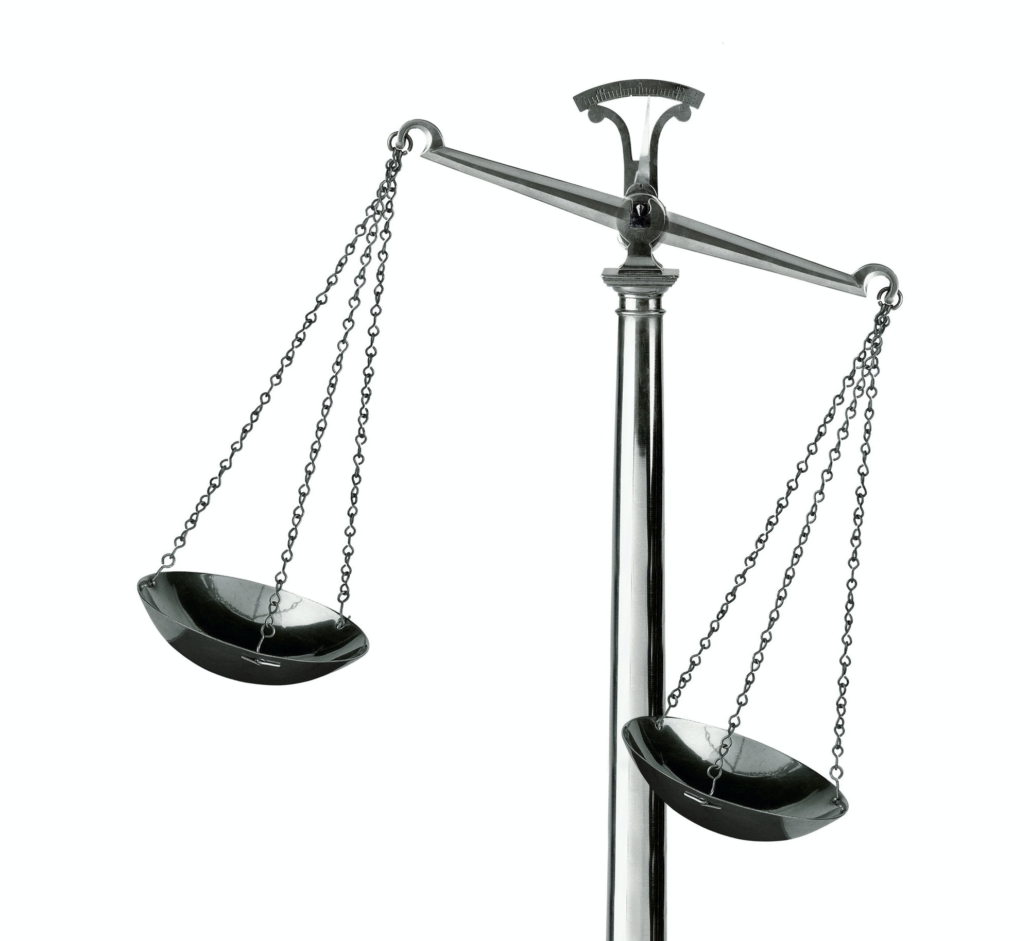LEGAL+ NEWS
The benefit obligations of private health insurers are essentially determined by the tariff selected in the individual case and the associated tariff conditions attached to the respective contract. A wide variety of benefits can be agreed in the individual contract. However, the usual benefits provided by private health insurers are based on § 192 VVG in conjunction with the 2009 model conditions for medical expenses and daily hospital benefits insurance (MB/KK). It should be noted that the MB/KK must have become the subject matter of the contract. As a rule, however, there is a reference to the MB/KK in the contracts, as these have been drawn up by the private health insurers themselves.
According to § 192 Para. 1 VVG in conjunction with the MB/KK, expenses for medically necessary treatment due to illness or the consequences of an accident are reimbursed. Pregnancy and childbirth are not illnesses, but a state of health. For this reason, the obligation of the health insurer to cover the costs of preventive medical check-ups, childbirth, etc. is specified separately in § 192 Para. 1 VVG and § 1 Para. 2 Sentence 4a MB/KK.
The prerequisites for the insurer’s obligation to pay benefits are in accordance with § 192 Para. 1 VVG in conjunction with § 1 Para. 1 and 2 MB/KK:
- Expenses incurred
- the existence of an illness or the consequences of an accident
- the provision of medical treatment
- the medical necessity of the measure.
The existence of these prerequisites must be determined on the basis of objective criteria. It does not depend on the subjective perception of the policyholder (BGH VersR 1987, 278, 279; OLG Hamm VersR 1997, 1342).
From the outset, costs that are conspicuously disproportionate to the service provided are not to be reimbursed (excess compensation, Section 192 (2) VVG). To determine a disproportion, the values of the service and consideration must be compared using objective criteria.

Expenses
The claim for benefits against the insurer presupposes that the policyholder has incurred expenses. There must be an effective and due claim for remuneration by the practitioner or other service provider against the insured person (BGH NJW 2003, 1596). An effective claim for remuneration and thus a corresponding obligation to pay benefits only arises if the fee regulations of the GOÄ and GOZ are observed. In principle, the insurer is only liable to pay subsequent benefits. This does not apply if the policyholder is demonstrably unable to bear the treatment costs incurred and therefore could not have a treatment urgently recommended by a doctor carried out (OLG Hamm VersR 2006, 826).
Illness or consequences of an accident
The purpose of the health insurance contract is basically only to cover the costs for the medically necessary treatment of an illness, the occurrence of an uncertain event. This makes it necessary to distinguish the concept of illness from merely subjectively perceived impairments.
Case law defines the term illness within the meaning of § 1 Para. 2 MB/KK as an abnormal physical or mental condition which entails a not insignificant disturbance of physical or mental functions (BGH VersR 1987, 278 f.; OLG Karlsruhe NJW 1986, 1552).
Case law has affirmed an illness in the following cases, although only a small excerpt is presented here:
- -Alcoholism (OLG Hamm VersR 1986, 865)
- -ectopic pregnancy (OLG Stuttgart VersR 1991, 646)
- -Fatty liver and increased urea concentration (LG and OLG Hamburg VersR 1981, 1049).
However, no illness was assumed in the following cases:
- Simple, age-related defective vision. This corresponds to the natural ageing process (LG Mannheim VersR 2008, 1200 f.)
- Bag-like skin folds in the eye area (LG Cologne VersR 1983, 388)
- Minor growth in a 5- or 6-year-old boy (OLG Hamm VersR 1986, 865)
Instead of illness, the insured event can also be based on an accident as a risk event. In this respect, private health insurance includes accident insurance (BGH VersR 1976, 851 f.). The insured event – just like the insured event due to illness – does not begin with the occurrence of the accident, but only with the medical treatment. The insured event presupposes that an accident has occurred and that the medically necessary treatment extends to consequences that are causally attributable to the accident.
The definition of an accident is derived from the legal definition in § 178 Para. 2 VVG. According to this, an accident occurs if the insured person suffers involuntary damage to their health as a result of a sudden external event affecting their body.
The scope of the PKV’s obligation to pay benefits in the event of accidents is limited to the medically necessary treatment of the consequences of the accident in accordance with § 1 Para. 2 Sentence 1 MB/KK.
Medical treatment
According to the recurring formula of the BGH, medical treatment is any medical activity that has been caused by the illness in question and is aimed at curing or alleviating an illness (BGH VersR 1996, 1224 ff.; VersR 1978, 271, 272).
Alleviation does not only mean the immediate improvement of a pathological condition. Rather, the alleviation of an illness through medical activity is also to be spoken of if it aims to attenuate, partially or completely prevent or eliminate the consequences of the illness (BGH VersR 1996, 1224 ff.; OLG Cologne VersR 1990, 612, 613).
There is no cure or alleviation if the treatment serves exclusively other purposes. Examples of this are sterilization for the purpose of limiting family planning or cosmetic surgery.
Services that are not directly related to the medical activity are also not part of the insured costs of medical treatment. In this sense, case law has, for example, denied a claim for reimbursement of travel and hotel costs incurred during treatment in an external clinic (LG Freiburg VersR 1986, 570, 571).
According to § 1 Para. 2 Sentence 1 MB/KK, the object of the insurance cover is the medical treatment of an illness of the insured person. In a few exceptional cases, this may also include measures carried out on other persons. This is the case if the treatment of the insured person inevitably requires the intervention of a third party, such as in the case of a transplantation (LG Oldenburg r+s 1990, 317).
Medical necessity
In practice, medical necessity in accordance with § 1 Para. 2 Sentence 1 MB/KK is the most relevant prerequisite for the assumption of costs by private health insurance. For decades, case law has developed the following assessment formula, which can now be regarded as established, for assessing whether medical necessity exists:
Treatment is medically necessary if it was justifiable to consider it medically necessary according to the objective medical findings and scientific knowledge at the time of treatment. The medical necessity of a medical treatment is justifiable if it sufficiently diagnoses the underlying ailment in a justified and comprehensible as well as well-founded procedure and applies an adequate, suitable therapy (BGH VersR 2003, 581, 584; 1979, 221 ff.; OLG Cologne VersR 1995, 1177).
If this suitability is established according to medical findings, the insurer’s duty to indemnify also exists in principle (BGH NJW 1996, 3074, 3075). Inpatient treatment is only medically necessary if the desired treatment success in the prognosis cannot be achieved to the same extent by outpatient measures (OLG Zweibrücken VersR 2007, 1505; OLG Koblenz VersR 2008, 339).
The reference to “scientific findings” does not mean that only findings that have been validated in medical science – i.e. in the field of research and teaching at scientific colleges and universities – may be taken into account when assessing the necessity of medical treatment. Rather, medical findings that have emerged in the field of so-called alternative medicine or are the result of the application of so-called “outsider methods” can also be taken into account (BGH NJW 1996, 3074, 3075; § 4 VI MB/KK). What is required here, however, is a mode of action based on medical knowledge and a successful proving of the method in practice (BGH NJW 1996, 3074; NJW 2003, 294; OLG Cologne VersR 2004, 631).
An objective standard, independent of the contract between doctor and patient, is applied to determine the insured event (BGH NJW 1996, 3074, 3075; NJW 2005, 3783, 3784). It therefore depends neither on the opinion of the policyholder nor solely on that of the attending physician (BGH NJW 1996, 3074, 3075). The fact that the therapy appears sensible, useful or justifiable to the doctor is therefore not sufficient (OLG Cologne r + s 1993, 314; LG Berlin r+s 1994, 71). In the event of a dispute, the medical necessity of a treatment measure can generally only be assessed by means of an expert opinion (BGH NJW 1979, 1250; OLG Koblenz VersR 2010, 204).
It is noteworthy that the obligation to pay benefits is not limited to the most cost-effective of several medically equivalent treatments (BGH NJW 2003, 1596, 1599 f., against the previously prevailing opinion)!
Burden of proof
The general principle also applies in private insurance law, according to which the party claiming a benefit from its contractual partner must prove the conditions of the alleged claim. As the medical necessity of the treatment is a central prerequisite for benefits in accordance with § 1 Para. 2 Sentence MB/KK, it must be proven by the policyholder in accordance with established case law. Any doubts shall be borne by the policyholder (BGH VersR 1996, 1224 ff.; 1991, 987; OLG Frankfurt/M. VersR 1981, 451 f.). Prima facie evidence is ruled out (KG r+s 2000, 120, 122).
If the insurer has examined the medical necessity of a specific measure and partially acknowledged its obligation to pay benefits, the occurrence of the insured event is undisputed on the merits. In this case, however, § 5 para. 2 sentence 1 MB/KK expressly grants the insurer the right to reduce its benefits to a reasonable amount if the treatment exceeds what is medically necessary.
As this is a regulation from which the insurer derives a legal consequence favorable to it, the insurer must now prove that the extent of the measure is no longer medically necessary (BGH VersR 1991, 987; OLG Düsseldorf r+s 2000, 429 f.).
BGH update: Correction of defective vision through LASIK surgery may be necessary (BGH ruling of 29. 3. 2017 – IV ZR 533/15)
In a ruling of 29 March 2017 (case no. V ZR 533/15), which is of great practical relevance, the Federal Court of Justice (BGH) rightly determined that the PKV cannot simply refer to the possibility of wearing glasses or contact lenses in the event of an operation to correct a visual defect. This is because (as the BGH correctly stated):
Wearing a visual aid does not constitute curative treatment with regard to the plaintiff’s defective vision!
Below are a few key excerpts from the judgment:
“(…) The obligation to pay benefits (…) therefore depends on whether the operation performed constituted medically necessary treatment. The BG – consistently from its point of view – did not make sufficient findings in this regard.
Medical treatment – in this case the outpatient operation on both eyes – is any medical activity caused by the illness in question, provided that the nature of the doctor’s service is aimed at curing, improving or alleviating the illness. Whether the implementation of this therapy was suitable for achieving these goals is not relevant to the existence of medical treatment within the meaning of the clause. Rather, this question is only relevant when examining whether the treatment is to be regarded as medically necessary within the meaning of § 1 para. 2 sentence 1 AVB; an objective standard is to be applied (Senatsurt. v. 10. 7. 1996 – IV ZR 133/95, BGHZ 133, 208 = r+s 1996, 457 under II 2).
Contrary to the opinion of the appellant, the medical necessity of the operation cannot be denied with reference to the customary wearing of glasses or contact lenses.
Wearing a visual aid does not constitute curative treatment with regard to the plaintiff’s defective vision . Glasses and contact lenses are merely aids that are used to compensate for physical defects over a longer period of time. Accordingly, the visual aid – which is characteristic of the use of aids – directly performs a substitute function for a diseased organ without restoring its functionality (see Senatsurt. v. 17. 12. 1986 – BGH file number IVAZR7885 IVa ZR 78/85, BGHZ 99, BGHZ volume 99 page 228 = r+s 1987, RUNDS year 1987 page 80 under II 5 and v. 19. 5. 2004 – BGH file number IVZR17603 IV ZR 176/03, NJW-RR 2005, NJW-RR year 2005 page 260 juris Rn. 21).
The average policyholder cannot see from § 1 para. 2 sentence 1 AVB that the eligibility for reimbursement of the costs of medically necessary treatment should in principle depend on whether he can (permanently) fall back on an aid that is suitable for compensating for or alleviating his existing abnormal physical condition without changing the actual ailment. There is nothing in the insurance terms and conditions to support such a general subsidiarity of the medical treatment compared to the medical aid. Nor can it be inferred from them that (financial) aspects other than medical necessity should play a role in assessing the eligibility for reimbursement of the costs of medical treatment. This is because § 1 para. 2 sentence 1 AVB expressly refers to “medically necessary” treatment, whereby “medically” refers precisely to “necessary”. This linguistic context makes it clear on a reasonable reading that the necessity of the treatment is to be assessed solely from a (purely) medical point of view and that other aspects do not play a role. (…)
The medical necessity of treatment within the meaning of the above statements is therefore to be assumed if a treatment method is available and has been applied that is suitable for curing, alleviating or counteracting the worsening of the illness (…).”

Scope of the insurance cover
Pursuant to § 1 Para. 3 MB/KK, the specific promise of benefits results from the insurance policy, the written agreements contained therein or subsequent written agreements and the General Terms and Conditions of Insurance. The latter include the MB/KK of the association, the company’s own tariff conditions and the tariff itself.
The tariff conditions can also deviate from the MB/KK – which are not binding – in terms of content. Examples of the agreement of additional benefits are the reimbursement of costs for a stay in a hospice or the possibility of using psychotherapists.
The scope of the insurance cover can also be further limited in individual contracts. As the private health insurer is generally not obliged to accept an insurance application, it is free to conclude the contract under special conditions such as the agreement of an exclusion of benefits or a risk surcharge. § Section 203 (1) sentence 2 VVG expressly grants the insurer this right with reference to any increased risk at the time the contract is concluded.
If a higher premium has been agreed due to the increased risk, the policyholder can demand that the premium be reduced appropriately in accordance with § 41 VVG if the risk-increasing circumstance no longer applies after the application has been submitted or after the contract has been concluded.
The scope of the insurance cover is also set out in detail in § 4 MB/KK.
The details are presented below:
§ 4 para. 2 MB/KK.
4 Para. 2 MB/KK grants the insured person the right to a free choice of doctor, i.e. to use any registered and licensed doctor and dentist and – if not excluded by the tariff – any alternative practitioner in accordance with the Heilpraktikergesetz. § Section 4 (2) MB/KK relates exclusively to outpatient treatment.
The tariff conditions typically provide for special features, such as the requirement of prior approval, for the use of psychotherapeutic treatment. This takes account of the fact that it is often not easy to distinguish between a disorder requiring treatment with disease value and mere life support.
§ 4 para. 3 MB/KK.
Medicines, dressings, remedies and aids must be prescribed by a practitioner within the meaning of § 4 Para. 2 MB/KK. Medicinal products must be obtained from a pharmacy, including mail-order pharmacies, provided they meet the usual German quality standards. Medicinal products are all substances or combinations of substances that can be used in or on the human body or administered to a human being in order to either restore, correct or influence human physiological functions through a pharmacological, immunological or metabolic effect or to make a medical diagnosis (BGH NJW 2006, 2630, 2634). Remedies are typically physical-medical services performed by a masseur or medical bath attendant as well as voice and speech training treatments performed by a speech therapist. Auxiliary aids are bandages, spectacles, crutches, hearing aids, etc.
§ 4 para. 4 MB/KK.
For inpatient treatment, the insured person can choose between public and private hospitals, including private clinics. The necessary medical management refers to the treatment area of the hospital and requires management, guidance and supervision by doctors who are not subject to medical directives. Furthermore, a sufficient material and personnel infrastructure is required. The demarcation must therefore be normative: If the treatment prevents the insured person from developing his usual lifestyle in a manner comparable to full inpatient admission, it is a partial inpatient treatment falling under § 4 para. 4 MB/KK (LG Köln VersR 2002, 1137).
§ 4 para. 5 MB/KK.
Pure spa and sanatorium treatments are generally excluded from the obligation to provide benefits (§ 5 I lit. d) MB/KK, for the other exclusions from the obligation to provide benefits in accordance with § 5 MB/KK, see below). However, the boundaries between sanatorium and hospital are becoming increasingly blurred if both clinical (§ 4 Para. 4 MB/KK) and spa and sanatorium treatments can take place in one establishment. In practice, the term “mixed institution” has become established for this. In addition to meeting the requirements of § 4 Para. 4 MB/KK, eligibility for reimbursement requires the insurer’s prior confirmation of benefits (§ 4 Para. 5 MB/KK). The clause is unobjectionable under general terms and conditions law (BGH NJW 2003, 598, 599).
§ 4 para. 6 MB/KK.
While methods predominantly recognized by conventional medicine are reimbursable without further ado, the obligation to pay benefits for methods of alternative medicine presupposes that these have proven to be equally promising in practice or that no conventional medical therapy is available (§ 1 para. 6 sentence 2 half-sentence 1 MB/KK). In this case, the insurer can reduce the amount to be reimbursed to the level of a conventional medical method (half-sentence 2). In this respect, the comparative therapy to be used is unclear if – as in variant 2 – no such therapy is available. For example, the following should not be reimbursable the costs of bioelectrical functional diagnostics, decoder dermography and Eichotherm therapy (OLG Saarbrücken VersR 2002, 1015), electro-acupuncture according to Voll (OLG Frankfurt NJW-RR 2003, 245) and bioresonance therapy (OLG Koblenz VersR 2002, 1367; OLG Saarbrücken VersR 2002, 1015), but reimbursable for hematogenous oxidation therapy (OLG Saarbrücken VersR 2002, 1015), acupuncture and treatment with thymus and ney preparations (OLG Stuttgart NVersZ 2007, 974).
Exclusion of the obligation to perform
The obligation to pay benefits described above may be excluded in some cases in accordance with § 5 MB/KK. For example, injuries caused by acts of war (§ 5 Para. 1 lit. a)) and intentionally caused insured events (§ 5 Para. 1 lit. b)) are excluded from the obligation to pay benefits. The service provider, usually the doctor, can also be excluded from reimbursement if his misconduct in the invoicing of services has repeatedly given rise to justified complaints by the insurer (§ 5 para. 1 lit. c); OLG Munich NJW-RR 1999, 1706; OLG Cologne VersR 1996, 490). In particular, cases of billing fraud are conceivable here.
However, withdrawal cures that aim to free the patient from an attachment to drugs, alcohol, nicotine or other addictive substances are also excluded from the reimbursement obligation (§ 5 Para. 1 lit d); BGH VersR 1988, 573, OLG Hamm r+s 1999, 84). This exclusion does not cover illnesses resulting from dependence on addictive substances, such as liver damage. In practice, this exclusion is particularly important in connection with alcohol abuse. Some tariff conditions of individual health insurers therefore include an obligation to pay benefits for withdrawal cures. This exclusion does not cover illnesses resulting from dependence on addictive substances, such as liver damage. See above for the exclusion of spa and sanatorium treatment.
Treatment by close relatives is also not reimbursable (§ 5 para. 1 lit. g)). This clause is based on the practical experience that the closer the relationship is, the greater the probability of treatment that is in reality free of charge but billed to the insurer (OLG Munich VersR 2000, 1406 ff.; LG Stuttgart r+s 1997, 169).
Finally, benefits for accommodation caused by a need for care are excluded. This can be assumed if the permanent helplessness of the person concerned for everyday activities is in the foreground, i.e. the improvement or cure of the underlying illness is not (no longer) the goal (OLG Hamm NJW-RR 1995, 1498; KG r+s 2003, 292). In this case, long-term care insurance is liable.
Subsidiarity clause
5 Para. 3 MB/KK provides for a limitation of benefits in the event that the policyholder is also entitled to benefits from the statutory accident insurance (SGB VII) or pension insurance (SGB VI) or statutory military welfare (in particular for soldiers, police officers, members of the professional fire department) outside of the medical expenses insurance.
In this case, the health insurer’s obligation to pay benefits is limited to the reimbursement of expenses that remain necessary despite the statutory benefits mentioned.
The benefit obligations of private health insurers are essentially determined by the tariff selected in the individual case and the associated tariff conditions attached to the respective contract. A wide variety of benefits can be agreed in the individual contract. However, the usual benefits provided by private health insurers are based on § 192 VVG in conjunction with the 2009 model conditions for medical expenses and daily hospital benefits insurance (MB/KK). It should be noted that the MB/KK must have become the subject matter of the contract. As a rule, however, there is a reference to the MB/KK in the contracts, as these have been drawn up by the private health insurers themselves.
According to § 192 Para. 1 VVG in conjunction with the MB/KK, expenses for medically necessary treatment due to illness or the consequences of an accident are reimbursed. Pregnancy and childbirth are not illnesses, but a state of health. For this reason, the obligation of the health insurer to cover the costs of preventive medical check-ups, childbirth, etc. is specified separately in § 192 Para. 1 VVG and § 1 Para. 2 Sentence 4a MB/KK.
The prerequisites for the insurer’s obligation to pay benefits are set out in § 192 Para. 1 VVG in conjunction with § 1 Para. 1 and 2 MB/KK:
- Expenses incurred
- the existence of an illness or the consequences of an accident
- the provision of medical treatment
- the medical necessity of the measure.
The existence of these prerequisites must be determined on the basis of objective criteria. It does not depend on the subjective idea of the policyholder (BGH VersR 1987, 278, 279OLG Hamm VersR 1997, 1342).
From the outset, costs that are conspicuously disproportionate to the service provided are not to be reimbursed (excess compensation, Section 192 (2) VVG). To determine a disproportion, the values of the service and consideration must be compared using objective criteria.

LATEST ARTICLES

Recognition and enforceability of foreign judgments
The question of the recognition and enforceability of foreign judgments in Germany is of great practical relevance: If a foreign (non-European) business partner threatens to sue in his home country in the event of a conflict, a decision must be made as to whether or not a defense against a possible lawsuit abroad makes sense.

LEGAL+ meets Legal Tech: LEGAL+ starts cooperation with BlockAxs
Legal+ is now relying on legal tech in contract law and the intelligent, artificial intelligence-based digital contract management solution ContrAxs.

Corona and contract law: Disruption of contracts
The coronavirus is forcing countries around the world to take drastic measures to counter the spread of the virus. This is having a serious impact on contract law. Many of these measures mean that contracts can no longer be fulfilled by at least one party. The cases affected are countless.
CONTACT

+49 (40) 57199 74 80
+49 (170) 1203 74 0
Neuer Wall 61 D-20354 Hamburg
kontakt@legal-plus.eu
Benefit from my active network!
I look forward to our networking.
This post is also available in: DE

